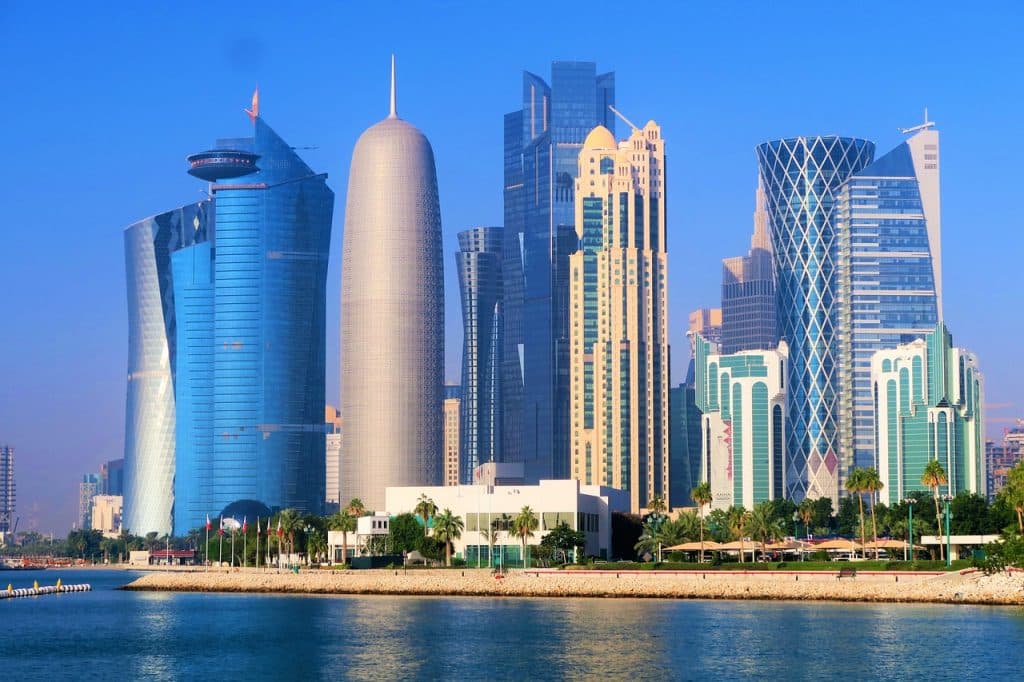My entire TikTok For-you page in the last week has been flooded with videos of fans in Qatar for the world cup. This, normally, would be of no surprise and would not be something unusual – as over the duration of the Euros the same thing happened. However, these videos feel false – all of the videos come from the same account: Qatari Living. And adding to that, all the shirts of the fans of various countries (Germany, Senegal, and Brazil to name but a few) all have the same name on the back: Qatar Fans [insert country name].
To put it simply these fans, at least to me and many others in the TikTok comment sections, would appear to be fake. With reports from various outlets, suggesting that these fans are being paid by the Qatari Government and are actually paid actors. This ‘fake’ fans situation seems to be only one of a plethora of weird situations surrounding the Qatari world cup – which in itself exists as a result of dubious and potentially corrupt circumstances (but that is not my jurisdiction to say). These videos of ‘fake’ fans which I can only assume were designed to give the world cup some sense of legitimacy, by demonstrating to viewers on TikTok that people from all over the world are coming to Qatar despite the controversy behind it, have been incredibly harmful and tarnished what shred of legitimacy and authenticity this World Cup previously had.
This nicely leads to the idea that, the failure of these Fake Fans to convince people of the legitimacy of the World Cup serve as a nice metaphor for the overall soft-power failure that has occurred during the Qatar World Cup. Now what is soft power? Soft power is when a country or organization attempts to use culture to attempt to influence nations/populations the perception of the country in question. One of the best examples of soft power is sporting events like the World Cup or the Olympics, and many controversial nations before Qatar have attempted (and often successfully) to use these events to sway public opinion – with prominent examples being Germany hosting the Olympics during the 1930s, Russia with the 2018 world cup.
Qatar is no exception to this, however, the impact that the hosting of the world cup has had on Qatar’s reputation internationally has been very different – with the hosting of the world cup opening Qatar up for increased scrutiny and international backlash. The first signs of this backlash were over their usage of Migrant workers, and the conditions under which they were working. Another example is their treatment of LGBT fans and subsequent threats towards LGBT fans wishing to attend the world cup.
This ‘fake’ fan situation then is simply the cherry on the top of the controversy cake for Qatar – and in many ways the underlying reasons behind it indicate that Qatar’s attempts to sway public opinion have gone wrong. This is because in previous tournaments such as the one in Russia, fans from all over the world attended the games despite the controversy and nature of Russia. However, this has not happened Qatar – and as discussed the Qatari government has been paying these ‘fake’ fans to attend games and produce promotional material as people are not going to Qatar due to the extreme amounts of controversy surrounding the nation itself.
To me, this shows that it is possible for sports diplomacy to backfire and prove detrimental to a nation’s soft power. It also shows that in the modern age simply hosting a sports tournament, which was previously something that guaranteed at least a small increase in soft power, is no longer an absolute guarantee of increasing soft power. I personally think that the ‘fake’ fans situation will not be the last controversial publicity stunt that is attempted over the duration of the world cup, but is certainly one of the most damaging given the proximity of it to the start of the world cup and also that when we look back on the world cups impact on Qatar we will be able to say that it was a net negative for the nation diplomatically.




